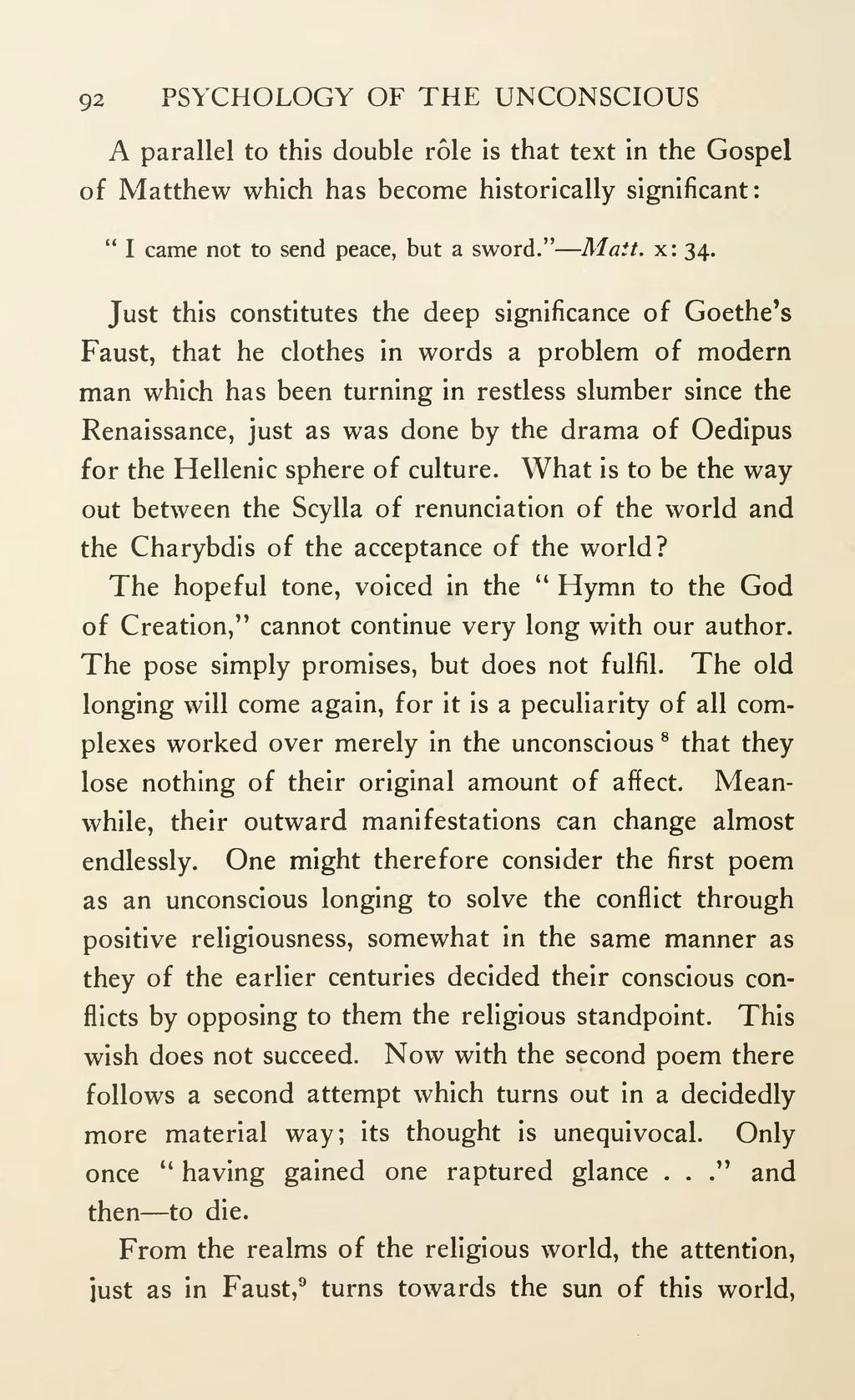A parallel to this double rôle is that text in the Gospel of Matthew which has become historically significant:
"I came not to send peace, but a sword."—Matt. x: 34.
Just this constitutes the deep significance of Goethe's Faust, that he clothes in words a problem of modern man which has been turning in restless slumber since the Renaissance, just as was done by the drama of Oedipus for the Hellenic sphere of culture. What is to be the way out between the Scylla of renunciation of the world and the Charybdis of the acceptance of the world?
The hopeful tone, voiced in the "Hymn to the God of Creation," cannot continue very long with our author. The pose simply promises, but does not fulfil. The old longing will come again, for it is a peculiarity of all complexes worked over merely in the unconscious8 that they lose nothing of their original amount of affect. Meanwhile, their outward manifestations can change almost endlessly. One might therefore consider the first poem as an unconscious longing to solve the conflict through positive religiousness, somewhat in the same manner as they of the earlier centuries decided their conscious conflicts by opposing to them the religious standpoint. This wish does not succeed. Now with the second poem there follows a second attempt which turns out in a decidedly more material way; its thought is unequivocal. Only once "having gained one raptured glance ..." and then—to die.
From the realms of the religious world, the attention, just as in Faust,9 turns towards the sun of this world,
